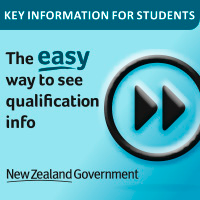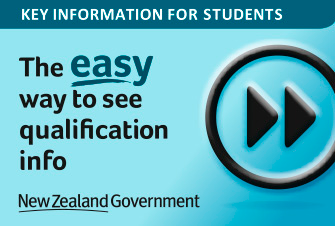Programme overview
With New Zealand’s leading Bachelor of Commerce programme you will learn from the country’s best teachers and mentors. You will get a taste of every aspect of the business world before deciding on a major or double major that’s right for you.
The real-world skills, knowledge and experience you will gain, along with the programme’s world-class accreditation and strong links to industry, will see you thrive in any industry you choose.
You’ll experience our innovative, first year in Business programme, with interactive learning, including workshops where you solve real-world business problems and develop in-demand, applied skills and knowledge.
You can also study the BCom as part of a conjoint degree, which means you can take two undergraduate programmes at the same time. You can do a conjoint with: Arts, Design, Engineering (Honours), Global Studies, Health Sciences, Law (including Honours), Music, Property, Science, Sport, Health and Physical Education.

Conjoint programmes let you pursue two undergraduate bachelors degrees at the same time.
Learn more about conjointsProgramme structure
A BCom with a double major is a three-year degree programme. You will be required to complete a minimum of 24 courses (360 points). In your first year, you will complete an integrated set of core courses, experiencing the multi-disciplinary environment that businesses operate in, and one further course depending on the major(s) you are planning to take*. You will also complete the Waipapa Taumata Rau core course.
A double major requires careful planning.
- If you wish to major in Accounting you will need to enrol in ACCTG 102 in your first year.
- If you wish to major in Economics you will need to enrol in ECON 152 in your first year.
- If you wish to major in Finance you will need to enrol in ACCTG 102 in your first year.
Planning your first year of the BCom
In your second year you’ll engage in a Business Consulting core course. In your third year, you’ll choose a capstone core course – select from an industry-based project, a business simulation, or a live business case.
You will also be required to select one General Education course as part of your degree.
*Maximum of three courses from outside the BCom schedule.
Most students need to take one General Education course.
Students should also be aware of the University’s Academic English Language Requirement.
Sample programme structure
Year 1 120 points
-
- Code:
- WTRBUS 100
- Name:
- Waipapa Taumata Rau
- Type:
- Core course
- Points:
- 15 pts
-
- Code:
- BUSINESS 111
- Name:
- Understanding Business
- Type:
- Business core
- Points:
- 15 pts
-
- Code:
- BUSINESS 114
- Name:
- Accounting for Decision Making
- Type:
- Business core
- Points:
- 15 pts
-
- Code:
- BUSINESS 115
- Name:
- Economics, Markets and Law
- Type:
- Business core
- Points:
- 15 pts
-
- Code:
- INFOSYS 110
- Name:
- Digital Systems
- Type:
- Business core
- Points:
- 15 pts
-
- Code:
- BUSINESS 112
- Name:
- Managing Sustainable Growth
- Type:
- Business core
- Points:
- 15 pts
-
- Code:
- STATS 108
- Name:
- Statistics for Commerce
- Type:
- Business core
- Points:
- 15 pts
-
- Name:
- Major or Elective course*
- Points:
- 15 pts
Year 2 120 points
-
- Code:
- BUSINESS 202
- Name:
- Business Consulting
- Type:
- Business core
- Points:
- 15 pts
-
- Name:
- Major 1 course
- Points:
- 15 pts
-
- Name:
- Major 1 course
- Points:
- 15 pts
-
- Name:
- Major 2 course
- Points:
- 15 pts
-
- Name:
- Major 2 course
- Points:
- 15 pts
-
- Name:
- Major or Elective course*
- Points:
- 15 pts
-
- Name:
- Major or Elective course*
- Points:
- 15 pts
-
- Name:
- Major or Elective course*
- Points:
- 15 pts
Year 3 120 points
-
- Name:
- Capstone course
- Points:
- 15 pts
-
- Name:
- Major 1 course
- Points:
- 15 pts
-
- Name:
- Major 1 course
- Points:
- 15 pts
-
- Name:
- Major 1 course
- Points:
- 15 pts
-
- Name:
- Major 2 course
- Points:
- 15 pts
-
- Name:
- Major 2 course
- Points:
- 15 pts
-
- Name:
- Major 2 course
- Points:
- 15 pts
-
- Name:
- General Education course
- Points:
- 15 pts
Subjects available in this programme
Note: From 2019, Information Management will be called Business Analytics. However, if you are currently studying Information Management your major will continue.
2025 entry requirements
My highest qualification is from:
Secondary school qualifications
If you're joining us from secondary school, here's what you need to enter the programme.
You are guaranteed entry to this programme if you meet these requirements.
- First, you must meet the University Entrance (UE) standard.
- You must also meet the rank score for this programme. Not sure about your rank score? Use our rank score calculator.
- You may need to have studied certain subjects or achieved credits in particular subjects.
- Some programmes have additional requirements, such as an interview, portfolio or references.
Guaranteed rank score, subject and other requirements
If your rank score is slightly lower than the guaranteed score, we encourage you to still apply. We will consider your application if places are available. If you don’t meet the requirements, you may be able to apply under our Undergraduate Targeted Admission Schemes.
-
QualificationNCEA National Certificate of Educational AchievementScore required165
-
QualificationCIE Cambridge International ExaminationsScore required170
-
QualificationIB International BaccalaureateScore required26
Read more about entry requirements for New Zealand secondary school applicants.
Tertiary qualifications
If you've studied at a tertiary institution, here's what you need to enter the programme.
You can transfer from another tertiary institution, or another University of Auckland qualification, if you meet these requirements.
Minimum grade requirements
These are the likely grades required, but they do not guarantee entry. Applicants may require higher grades to gain entry to this programme.
-
Grade requiredGPA Grade Point Average 2.5
-
Grade requiredGPE Grade Point Equivalent 2.5
Further requirements
You must have completed one semester of successful bachelor degree study from a New Zealand tertiary institution, or one year of successful study as part of an acceptable sub-degree qualification from a New Zealand tertiary institution.
Transfer of Credit - You can apply for transfer of credit for tertiary courses completed elsewhere as part of your Application for Admission. For more information, see External transfer of credit.
If you have completed study at another New Zealand University, get an estimate of the transfer credit you may be eligible for, using our Transfer Credit Calculator.
Other pathways to study
You could be eligible for another programme, or check out these alternative pathways:
- See if you meet the criteria for the Undergraduate Targeted Admission Scheme (UTAS).
- Bridge your educational gap with a preparation and foundation programme.
- If you are 20 on or before the first day of semester, have no formal University Entrance (UE) qualification, and are a New Zealand or Australian citizen or permanent resident you can apply for special admission.
- If you are under 20, have no formal University Entrance (UE) qualification, and are a New Zealand or Australian citizen or permanent resident you can apply for discretionary entrance.
- If you can demonstrate outstanding academic achievement and maturity, we offer admission to applicants under 16.
- If you are entering university for the first time but don’t meet the University of Auckland general selection standards, have a look at the Aspiration to Business admission scheme (A2B).
My highest qualification is from this country or region:
Secondary school qualifications
If you're joining us from secondary school, here's what you need to enter the programme.
You need to have one of the following:
- International Baccalaureate Diploma with a minimum total score of 24.
- General Certificate of Education (GCE) Advanced Level. You must have completed a minimum of three A-Level subjects.
- Cambridge International Examinations (CIE). You must have completed a minimum of three A-level subjects.
GCE ‘A’ Level requirements apply to ‘A’ Level qualifications examined by bodies such as AQA, OCR, Edexcel, WJEC, CCEA and Pearson Education Limited taken outside of New Zealand.
Minimum grade, subject and other requirements
Minimum requirements listed here are the likely grades required and do not guarantee entry. We assess each application individually and applicants may require a higher grade to be offered a place. Your CIE/GCE A level score is calculated on the best three academic subjects and General Studies cannot be included.
-
QualificationIB International Baccalaureate DiplomaScore required27QualificationIELTS Academic International English Language Testing SystemScore required6.0
No bands less than 5.5.
-
QualificationGCE A Level/CIE General Certificate of Education Advanced LevelScore requiredBCCQualificationIELTS Academic International English Language Testing SystemScore required6.0
No bands less than 5.5.
Tertiary qualifications
If you've studied at a tertiary institution, here's what you need to enter the programme.
You can transfer from another tertiary institution if you meet these requirements.
You need to have the following:
One year successful bachelor-degree level study at a recognised university (or similar institution) overseas.
Minimum grade requirements
These are the likely grades required, but they do not guarantee entry. Applicants may require higher grades to gain entry to this programme.
-
Grade requiredGPE Grade Point Equivalent 2.5
-
QualificationIELTS Academic International English Language Testing SystemScore required6.0
No bands less than 5.5.
Other pathways to study
You could be eligible for another programme, or check out these alternative pathways:
- Bridge your educational gap with a preparation and foundation programme.
- If you have an offer of place from us that is conditional on meeting English language requirements, you may be considered for English Pathway courses from the University of Auckland English Language Academy (ELA)
- If you are 20 on or before the first day of semester, have no formal University Entrance (UE) qualification, and are a New Zealand or Australian citizen or permanent resident you can apply for special admission.
How much does a Bachelor of Commerce cost per year?
2025 fees
- Domestic students
- NZ$7,742.40*
- International students
- NZ$45,841*
Fees are set in advance of each calendar year and will be updated on this website. Fees are inclusive of 15% GST, but do not include the Student Services Fee, course books, travel and health insurance, or living costs. Amounts shown are indicative only. In addition to the tuition fees, there is a Student Services Fee of $9.24 per point, estimated at $1,108.80 for full-time study (120 points). Fees will be confirmed upon completion of enrolment into courses.
*Please note: amounts shown are indicative and estimates only.
Find out about financial support information
Scholarships and awards
Find out about the scholarships you may be eligible for.
Student loans and allowances
Are you a New Zealand citizen or resident? You could be eligible for a student loan or allowance.
Cost of living
Get an idea of how much accommodation and general living in Auckland will cost.
Key dates
Please note: We will consider late applications if places are still available. International students should start the application process as early as possible to allow sufficient time to apply for a visa.
Application closing dates
- Summer School 2025
- 1 December 2024
- Semester One 2025
- 8 December 2024
- Semester Two 2025
- 4 July 2025
Start dates
Here are the start dates for the programme.
| Summer School | Starts – 6 January |
|---|---|
| Ends – 19 February | |
| Semester One | Starts – 3 March |
| Ends – 30 June | |
| Semester Two | Starts – 21 July |
| Ends – 17 November |
| Summer School | Starts – 5 January |
|---|---|
| Ends – 18 February | |
| Semester One | Starts – 2 March |
| Ends – 29 June | |
| Semester Two | Starts – 20 July |
| Ends – 16 November |
Other important dates
See important dates for the academic year, including orientation, enrolment, study breaks, exams, and graduation.
How to apply
Applying for an undergraduate programme? Check out our step-by-step guide.
Developing your capabilities
The Business School is committed to giving you opportunities to develop as a scholar, leader, innovator and global citizen.
As you study towards your BCom degree you can expect to develop capabilities that will enhance your employability and help you make a positive impact on society. You will acquire these capabilities from your courses and through participation in a range of co-curricular activities.
As well as enhancing your critical thinking and analytical skills, your degree will equip you with strong communication, teamwork and leadership skills and cross-cultural understanding.
As a BCom graduate you will be able to develop:
- Knowledge and Practice
Demonstrate and apply a breadth of knowledge across disciplines, as well as specialist knowledge within one or more of them, while recognising the relevancy of this knowledge within a global context. - Critical thinking
Analyse and critique theory and practice to develop well-reasoned arguments. - Solution seeking
Identify and frame problems using analytical skills to create and evaluate innovative solutions. - Communication and engagement
Collaborate and communicate effectively in diverse business contexts using multiple formats. - Independence and integrity
Respond professionally and ethically, demonstrating a capacity for independent thought and learning. - Social and environmental responsibility
Recognise the significance of the principles underpinning the Treaty of Waitangi and consider your obligations in relation to sustainability, whilst displaying constructive approaches to diversity.
Where could this programme take you?
Business is everywhere, from environmental groups to your favourite fashion brands and our graduates are doing important work in industries both established and emerging. The skills and knowledge you will gain from the BCom are invaluable in any industry and can start you on a huge range of exciting and diverse career paths .
Jobs related to this programme
- Accountant/Financial adviser
- Business analyst
- Corporate, investment or merchant banker
- Operations manager
- Policy analyst or adviser
- Sales or marketing manager
- Entrepreneur/Business owner
- Web applications developer

Pok developed a passion for sustainability and consulting at the Business School, preparing for a career in human rights and climate impact.
Read moreStudent career planning service
Once you become a student at the University, you can get help with planning and developing your career from Career Development and Employability Services.
The Business School also has its own dedicated Careers Centre. It provides business specific career advice and a range of services including individual support, workshops, and employer engagement. The Careers Centre will help you to develop your employability to secure a meaningful, successful and rewarding career.
Experience the University

Ronette's story | Campus, community, connection
Ronette shares the story of finding her place at the Business School by immersing herself in campus clubs and extracurricular activities.
Do you need help?
Can’t find the answer in AskAuckland?
Need to speak to someone?
You can phone us directly.
- Auckland
- 923 5025
- Outside Auckland
- 0800 61 62 63
- International
- +64 9 373 7513


